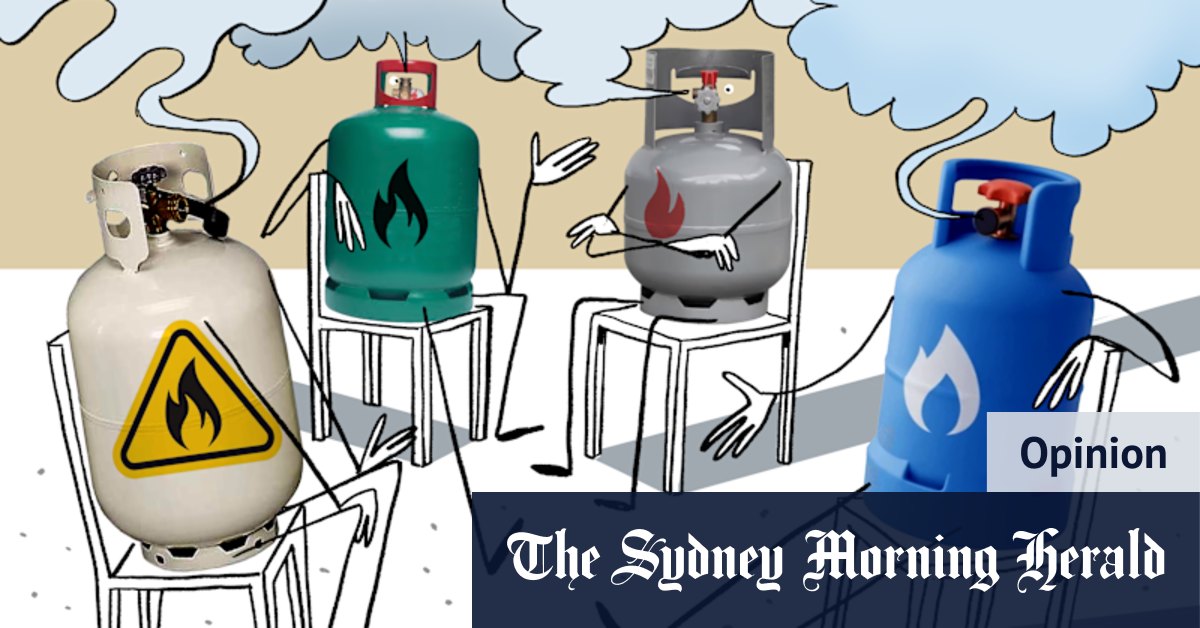The Australia Institute report finds that the total value of our natural gas exports over the four years to June 2024 was $265 billion. It estimates that 56 per cent of this resulted in no royalties, state or federal.
“This means that more than half the gas exported from Australia is given for free to the companies exporting it,” it says.
The royalties that were paid over the past four years represented less than 4 per cent of the total value of the gas exported. It should have been nearer 9 per cent, yielding an extra $13 billion.
We’re always being told how important mining and gas are to the economy. But how, exactly? It’s not our job to help big foreign companies make big profits. Mining and gas are capital-intensive industries, meaning they don’t employ many people. And most of the capital equipment they use would be imported.
The increasingly foreign-owned BHP tells us it’s the Big Australian, while telling the taxman it’s the Big Singaporean.
So it’s vitally important that the businesses – even when they’re locally owned – pay a fair price for the natural resources we allow them to extract and take away. The energy and minerals are, after all, non-renewable.
And it’s equally important that the mineral and gas companies pay a fair bit of tax on their hefty profits. We’ve had far too much, for instance, of the increasingly foreign-owned BHP telling us it’s the Big Australian, while telling the taxman it’s the Big Singaporean.
Which brings us back to next week’s roundtable. The radical change in the way companies are taxed, proposed by the Productivity Commission as a way of improving our productivity, has been opposed by 24 business lobby groups, and isn’t likely to fly.
But it was intended to reduce the company tax paid by most of our companies, while covering the government’s loss of revenue by increasing the tax on our 500 biggest companies, many of them the local subsidiaries of foreign multinationals.
The change would have made it harder for them to fiddle their taxes. And they would have included our big foreign-owned gas companies.
The Productivity Commission’s modelling in preparation for the roundtable includes an assessment of each of our taxes: how much they damage the economy by discouraging people from working, saving and investing.
Loading
I have doubts about these exercises, but the commission’s assessment gave the worst rating to the state governments’ stamp duties, the rate of company tax, and the top rate of personal income tax. (I’ve been on that top rate for almost all my career, and it’s done nothing to dampen my enthusiasm for bashing out another pontification about economics.)
But here’s the point: it gave the petroleum resource rent tax a small positive rating. In other words, it said that, if the rate of this tax were increased, it would do more to encourage working, saving and investing. That’s an indication of the price we’re paying by allowing the accidental free ride we’re giving the gas exporters to roll on.
Earlier this year, the boss of the Australia Institute, Dr Richard Denniss, caused a stir by claiming that the government takes more money from uni students through HECS than it collects from the petroleum resource rent tax. It was such a strange assertion the ABC set its fact-checkers on him. They had to admit his numbers were right.
And though it may seem an odd comparison, it’s a valid one. The government makes graduates contribute to the cost of their education because it doesn’t have enough money to do everything it would like to. In which case, why is it giving our gas away to big companies?
Denniss reminds us that, in Norway, they do it the other way around: tax their oil and gas industry heavily and give their kids free higher education.
Maybe if we impose a tax on gas exports, we could afford to halve the cost of a BA.
Ross Gittins is the economics editor.
Ross Gittins unpacks the economy in an exclusive subscriber-only newsletter. Sign up to receive it every Tuesday evening.

